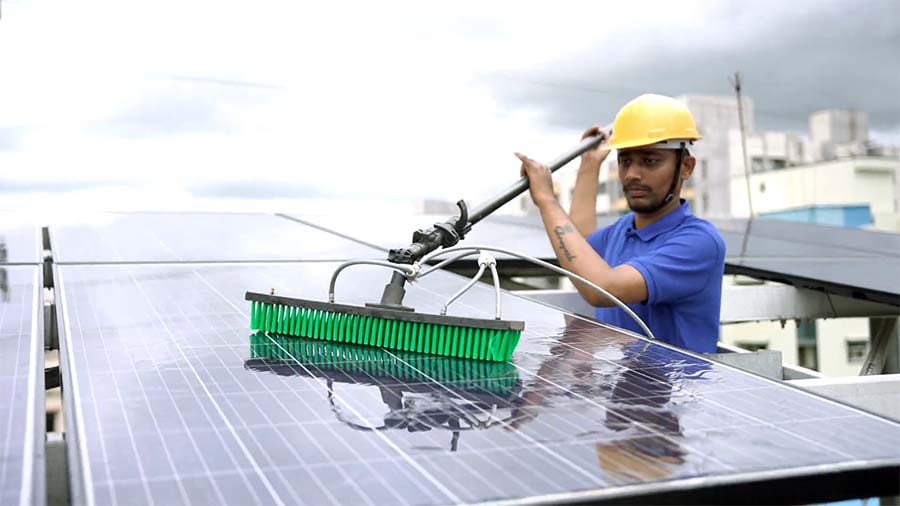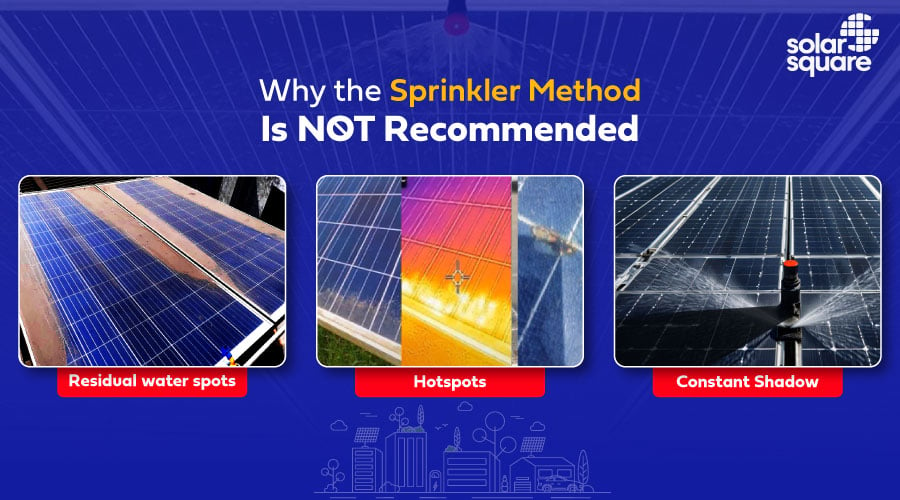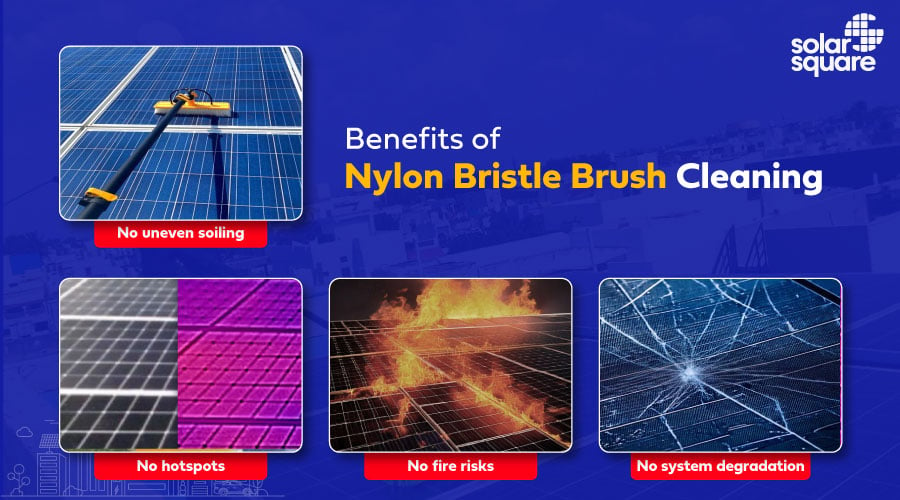
Over 6-7 lakh homes in India (as of February 2024) have embraced solar energy, marking an incredible milestone in the journey toward a greener future. While this solar boom is truly commendable, Many families, in their enthusiasm to go solar, are inadvertently choosing the wrong vendors—especially those who neglect the critical aspect of solar maintenance.
A study conducted by reputed think tank CEEW in partnership with PV Diagnostics revealed that 80% of rooftop solar installations underperformed due to dust and bird droppings. Furthermore, the performance of these systems dropped by ~30% within 2 years due to lack of maintenance.
The truth is that without proper upkeep, even the best solar systems will underperform, leading to diminished savings and efficiency.
Investing in solar energy is a smart long-term choice, offering both cost savings and positive environmental impacts. However, just like vehicles and air conditioning systems require regular maintenance, solar panels need consistent cleaning and upkeep to operate optimally.
It’s not just about cleaning itself; using the correct cleaning techniques is vital, too. Accumulating dirt, dust, and debris on their surfaces can hinder their efficiency and decrease output.
According to OEM user manuals, improper cleaning techniques might harm panels, rendering your warranty null/void. Improper cleaning methods can pose safety hazards as well.
This blog explains safe cleaning practices for solar panels and how frequently you should perform essential maintenance to ensure your solar system operates efficiently for many years.
Why Regular Solar Panel Cleaning Is Necessary
Over time, solar panels gather dust, grime, and bird waste which can greatly hinder their efficiency in absorbing sunlight and producing electricity. Imagine driving a car with a dirty windshield; you can still see the road ahead, but your view/vision is compromised. Similarly, dirty solar panels still work, but not at their best or efficiently.
Therefore, if your solar panel surface has bird droppings or even dust, they can significantly decrease electricity generation efficiency.
For example, a household with a 3 kW system might experience a ~30% drop in electricity generation if the panels go uncleaned for 2 years, which further translates to higher bills over time.
Cleaning your panels regularly can prevent these issues.
Why the Sprinkler Method Is NOT Recommended
Although using a sprinkler may seem like an easy way to clean your solar panels, manufacturers do not recommend it. Sprinklers can do more harm than good in the long run.

1. Residual water spots
Water spots are caused by uneven water distribution on the panel surface due to these sprinklers. When these droplets evaporate, they leave behind mineral deposits on the panels, thus reducing efficiency.
2. Hotspots
If dirt or debris is removed unevenly, this can result in dust clusters that render that area of the solar panel dysfunctional and lead to uneven heating across the panel surface. This can cause strain on the system and potential overheating in those areas, leading to fire hazards and faster degradation of your solar panels.
3. Constant Shadow
Sprinklers attached to solar panels create a constant shadow over that part of the panel, thus reducing the system’s performance.
While panels are designed to withstand rain, continuous exposure to water from sprinklers and inadequate cleaning can speed up wear and shorten the lifespan of your panels.
The Best Way to Clean Solar Panels
Solar panel manufacturers recommend nylon bristle brushes as the safest and most effective method for cleaning solar panels.
They are gentle enough to prevent scratching but strong enough to remove tough dirt and debris. This makes them perfect for maintaining the efficiency of solar panels over time. Unlike other methods that may leave spots or missed areas, a nylon brush ensures consistent cleaning across the entire panel surface. This helps keep your solar panels working at their best by ensuring optimal sunlight exposure and electricity generation.
Benefits of Nylon Bristle Brush Cleaning

- No uneven soiling: Cleaning with nylon bristle brushes cleans the surface evenly and helps avoid the buildup of dirt patches obstructing sunlight and decreasing the panel’s efficiency.
- No hotspots: Regularly cleaning with a nylon brush can reduce the likelihood of localised overheating due to dirt patches that might harm the panel cells or cause overall system decline.
- No fire risks: Nylon bristle brush provides a more efficient cleaning solution that eliminates the risk of short circuits or fire incidents.
- No system degradation: Nylon bristles are soft enough to avoid harming the protective glass layer on your panels, ensuring they remain clean and operate efficiently while extending their lifespan.
How Often Should You Clean Your Solar Panels?
The frequency of cleaning can vary based on your geographical area, climatic conditions, and environmental influences like dust accumulation or bird droppings. Cleaning your solar panels every three months will ensure they operate at peak efficiency. However, in harsher environments, more frequent cleaning may be necessary to maintain optimal performance and prevent any decrease in efficiency.
Although cleaning is beneficial for removing dirt and debris from the panels, it isn’t a standalone solution. Routine inspections of the entire solar system are necessary to verify everything is working correctly. These inspections can identify additional concerns like wiring or inverter malfunctions that cleaning will not resolve.
Furthermore, it is important that solar panel cleaning and checks are done by trained professionals only.
SolarSquare’s 360-Degree Maintenance Service
With each SolarSquare system, we offer a 360° maintenance service designed to keep your solar panels running at peak efficiency. This maintenance includes module cleaning and preventive checks of inverters, cables and more. Your solar system will receive premium care for the next five years with this plan.
The features of the plan include the following.
| Maintenance Type | Description | Frequency |
|---|---|---|
| Preventive Maintenance | 24×7 remote monitoring | Always |
| Corrective Maintenance | Break-down service, On-Call | As needed |
| Module Deep Cleaning with special equipment Equipment Inspection | Critical for solar system performance – electrical equipment, structural and mechanical inspection | Every 15 days or 20 times a year |
We’ll visit at least 45 times over five years to provide detailed inspections, cleanings, and adjustments, ensuring your system consistently delivers peak performance.
Choose Sahi-Maintained Solar with SolarSquare
Don’t just invest in solar—invest in properly maintained solar. With SolarSquare’s comprehensive maintenance services, you can ensure your solar system stays clean, safe, and efficient for the long term.
Make the switch towards sahi maintained solar – contact us today.
FAQs
Q1. What is the best time to clean solar panels?
Ans. The panel temperature and water used for cleaning need to be the same to ensure that excessive heat or temperature variations do not damage the panels. Hence, the best time to clean solar panels is early morning or late evening.
Cleaning during peak sun hours can also risk water evaporating too quickly, leaving streaks, and handling heated-surface panels can be dangerous.
Q2. Can I clean solar panels with a pressure washer?
Ans. Solar panel manufacturers do not recommend using a pressure washer as the high pressure can damage the surface of the panels, cause cracks, and affect their efficiency. Instead, use a nylon bristle brush or soft cleaning methods.
Q3. Is it necessary to clean solar panels?
Ans. Yes, regular cleaning is necessary to maintain maximum efficiency. Dirty panels can reduce energy output, but regular cleaning ensures the panels perform at their best.
Q4. How much does cleaning solar panels cost?
Ans. The cost of professional solar panel cleaning depends on the size of the system, the location, and the condition of the panels. Contact your trusted solar vendor to enquire about the solar cleaning costs involved.


 2300 Reads
2300 Reads 7 mins
7 mins




.png)


.png)